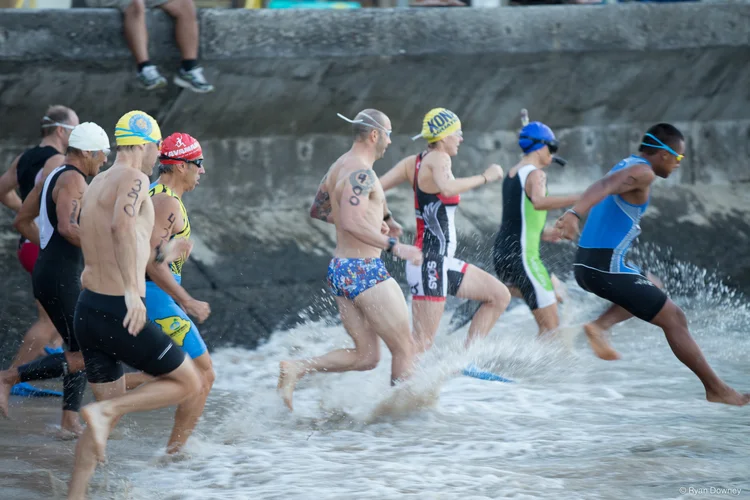If there’s one thing that I hear over and over again when it comes to triathlon, it’s negativity about the swim portion of the race.
“I’m going to be the last person out of the water.”
“I’m not a great swimmer, it’s my worst part.”
“I just need to get the swim done so I can get to the bike.”
“I’m just hoping I don’t drown!”
Let me start off by saying that I also hope you don’t drown - Good grief, that’s not a great race plan!! As a triathlete and coach with a competitive swimming background, it was difficult hearing this over and over as I began coaching newcomers and age-groupers. “Swimming is like breathing to me” I’d tell them, and my lack of understanding of their fears, quite simply, left me puzzled. So as a coach that tries to bring hard science and education to athletes, I knew I had to look for commonalities and solutions.
After countless swim analysis sessions with athletes of all skills and levels, it’s surprising how alike we all really are. I find myself repeating much of the same principles and tactics to athletes that are not only struggling with the swim, but also fine-tuning their swim!! In the end, it all boils down to a few key, foundational techniques, and then it’s like anything else – it takes practice! Here’s what I’ve found helps athlete’s step out of fear, and into the water:
Get a swim analysis.
Youtube is NOT the way to learn how to swim (I’m still so shocked that I hear this on the regular!). Having a coach that can look at your technique one on one, and give you instant feedback, is a great way to learn how to adjust your swim to get more efficient. Video recording of your actual swim, mirrors in the water (such as in the Playtri endless pool), and taking pictures are some of the ways that athletes can see what the coach sees, and can immediately address during a session. Getting efficient in technique will help strengthen your balance in the water and make you more comfortable in the water.
Understand and plan for your swim.
Do you have something specific you’re shooting for? When you have a clear focus point, it can help keep you moving in the right direction. If you’re training for a race, know what the swim portion will consist of: How far is the swim? Will it be in a pool or open water? How long is the pool? All too often, many athlete’s end up underprepared for the swim because they didn’t spend enough time training for race conditions. Using a pool to practice for open water, wrong pool size, not practicing with a wetsuit, and even the wrong lens color for the conditions of the day can create anxiety. Knowing what to expect on race day will help give you time to practice more of what you need. Visualizing your swim, joining coached open water swims, practicing your race day gear will make you more comfortable and more at ease come race day.
Remember you’re not alone, so keep moving!
Swimming is by far the most difficult portion for most triathletes, whether physically or mentally, so knowing that most of the people around you are feeling the same can help put you at ease - We all start out in “unfamiliar waters”. Keep your focus on what you’re doing in the moment, (trying to minimize the starting/stopping cycle so it will be more efficient and faster) and you won’t allow yourself the time to focus on anything else but your swim!
Before you know it, you’ll be through the water and back on land!!
Find a swim coach and training sessions with Playtri at playtri.com/personaltraining/

